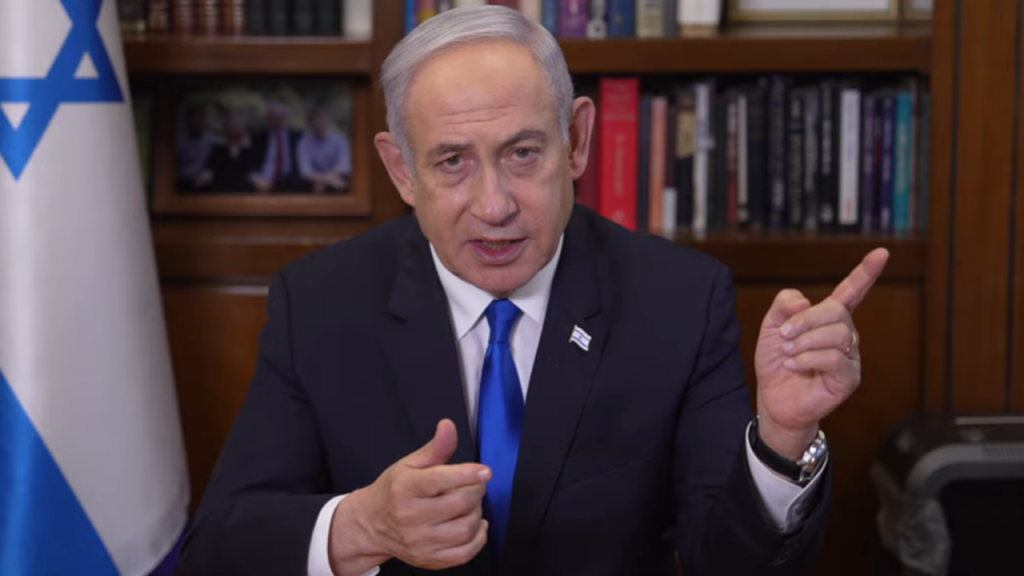Israeli Prime Minister Benjamin Netanyahu condemned the International Criminal Court’s decision to pursue arrest warrants against him and his defense minister, saying it is the latest example of what he calls the new antisemitism. The ICC prosecutor, Karim Khan, stated that there are reasonable grounds to believe Netanyahu, Israeli Defense Minister Yoav Gallant, and Hamas leaders committed war crimes and crimes against humanity during the war in Gaza. Netanyahu rejected the comparison made by the prosecutor between Israel and Hamas, calling it a distortion of reality and an example of the new antisemitism moving from campuses in the West to the court in The Hague.
Netanyahu emphasized that the arrest warrants are not only directed against him and the defense minister but against the entire state of Israel, including IDF soldiers who are fighting against Hamas. He described the prosecutor’s request as absurd and false, expressing his determination to overthrow the rule of Hamas and achieve complete victory. In an English-language statement, Netanyahu labeled the ICC’s decision as a travesty of justice and a disgrace, highlighting the gravity of the situation and the implications it could have for Israel.
The ICC’s Khan elaborated on the alleged crimes committed by Netanyahu and Gallant, including the starvation of civilians as a method of warfare and intentionally directing attacks against a civilian population. He referenced evidence collected, such as survivor interviews, authenticated media material, and satellite imagery, to support these claims. Khan acknowledged Israel’s right to defend its population but emphasized that this right does not absolve the country from complying with international humanitarian law. Netanyahu and Gallant are accused of systematically depriving the civilian population in Gaza of essential resources required for survival.
The ICC’s decision to pursue arrest warrants against Netanyahu, Gallant, and Hamas leaders has sparked international condemnation and controversy. President Joe Biden criticized the request as outrageous, echoing concerns raised by Israel about the validity and fairness of the process. Netanyahu’s strong denunciation of the ICC’s actions reflects the deep-rooted tensions and divisions in the region, particularly regarding the Israeli-Palestinian conflict. The situation underscores the complex and delicate nature of international justice and accountability, especially when dealing with allegations of war crimes and crimes against humanity.
Netanyahu’s response to the ICC’s decision highlights his determination to defend Israel’s reputation and sovereignty in the face of international scrutiny and criticism. The prime minister’s rejection of the arrest warrants and condemnation of the prosecutor’s accusations underscore the political and diplomatic challenges facing Israel in the global arena. The ongoing conflict in Gaza, the role of Hamas, and the actions of the Israeli government are at the center of the legal and moral debate surrounding the ICC’s jurisdiction and decision-making process. The repercussions of the ICC’s move could have far-reaching implications for the region and international relations.













